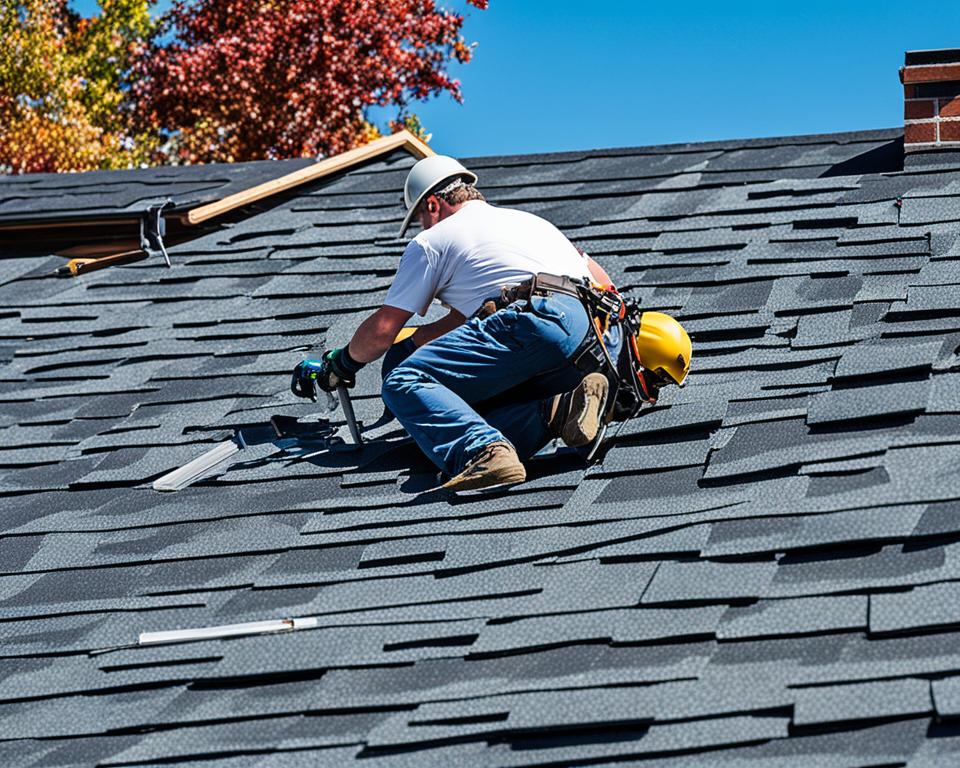In many areas, weather conditions and climate change are big game changers when it comes to the cost of a home. There are areas where hails are prevalent and they have the proclivity of causing damages to homes in the area at least eighty percent of the time.
Many roof damages are a result of hailstorms, and many homeowners who have insured their homes on one insurance policy or another always argue that hailstorms are an act of God, and therefore, they should not be liable to pay the deductible, but is that true? As a homeowner, do I have to pay a deductible for hail damage to my roof?
Deductibles are paid on hail damages to roofs undeniably destroyed by hail or hailstorms.
What is Hail Damages?
For those who do not quite grasp the term yet, hail damages are damages or losses that are caused by hails or hailstorms.
Hails are simply balls of thick ice, varying in sizes, but mostly small that are a result of the weather condition.
Hails fall from the sky just like rain, except that they can damage outdoor properties, mostly roofs, and cars. Also, when they are heavy, or incessant, they are called hailstorms.
Damages to a home (mostly the roof), or to your car, that is caused by hail or hailstorm are called hail damages, and if your home or car is covered in a proper insurance policy, hail damages are supposed to be covered by the policy.
What are Deductibles?
In simple terms, deductibles are the amount of money that an insurance holder pays from his pocket before the insurance company pays the rest in form of an insurance claim.
For example, if the cost of repairs to the roof, or construction of a new roof costs $15,000, and the deductible on that insurance policy is $3,000, the insurance policyholder will have to pay $3,000 before the insurance providers pay the rest to the tune of $12,000.
Deductibles are used to offset the large insurance claims and put a ceiling on the amount of money that an insurance company can pay to cover losses, insisting that the insurance policyholders also pay a certain amount, hence, deductibles.
Do You Pay Deductible For Hail Damage?
Deductibles are paid on hail damages to roofs and cars and any insured property undeniably destroyed by hail or hailstorm.
Except you are taking the full coverage insurance on your home, where you don’t have to pay deductible as it has been paid alongside your high premiums, you will have to pay policy deductible on hail damage to your insured property.
Deductibles are paid on hail damages to roofs and cars as well. To avoid paying deductibles, whether, on hail damages or any other damages to your roof, you simply have to take the full coverage insurance policy that pays for whatever costs of repairs or construction in full, without you having to pay an emergency out-of-pocket fee when you get damage to your roof.
The only downside to this type of insurance policy is the fact that the premiums paid are higher than the usual insurance policies.
Do I Have to Pay a Deductible for Hail Damage to My Roof?
Yes, you have to pay a deductible for hail damage on the roof except you are on a premium insurance policy.
The damage that hailstorms can have on the roof of your home can affect the whole house, if not detected on time and corrected or repaired.
Hails from the sky, once they constantly fall upon the roof certainly leads to breakages and cracks to the shingles of the roof, breaking the roof apart and causing nature – in form of rain, snow, sun, and even the hailstones themselves – to penetrate your home. At that point, the roof is as good as useless.
Once it is detected, the responsibility to decide as to whether to patch up or replace the entire roof rests solely on you as the homeowner.
You would have to take your insurance policy/claim into consideration, and also whether you have enough to pay the deductible.
Many homeowners make the mistake of leaving the roof unattended and letting the problem fester into a full-blown, almost uncontrollable situation where they have no choice but to completely remove and replace the roof.
Some homeowners claim not to know when their roof has been damaged by hailstones. In case you fall in this category, to know if your roof has been damaged, look for pieces of evidence around your house.
Some of these pieces of evidence can be suddenly damaged air conditioners, damaged outdoor properties such as furniture, dents on the body of cars parked in your garage, etc.
How Much Does it Cost to Repair Hail Damage on Roof?
Depending on the size of the roof that needs repairs, a homeowner could pay between $5,000 for an average-sized roof, and $20,000 for a large-sized roof when repairing hail damages to a roof.
This is why insurance is important, as hard is there anyone with such amount of money lying around to pay for repairs.
With insurance, instead of paying the full amount, saddling the total burden upon your finances, all you will be paying is the deductible. Check out: Will My Insurance Go Up If I Get a New Roof?
Final Thoughts
Again, it is important to know that deductibles are paid for hail damage to the roof when a homeowner requests an insurance claim to repair his or her hail-damaged roof.
To avoid hails, hailstones, and hailstorms, homeowners and prospective homeowners should critically search and survey areas, researching their weather conditions before purchasing a home, so they will be careful not to purchase a home in an area infested with constant hailstones that will constantly damage their properties and cause them to never stop repairing and spending a lot of money. Due diligence is important when selecting an area to purchase a house in.





